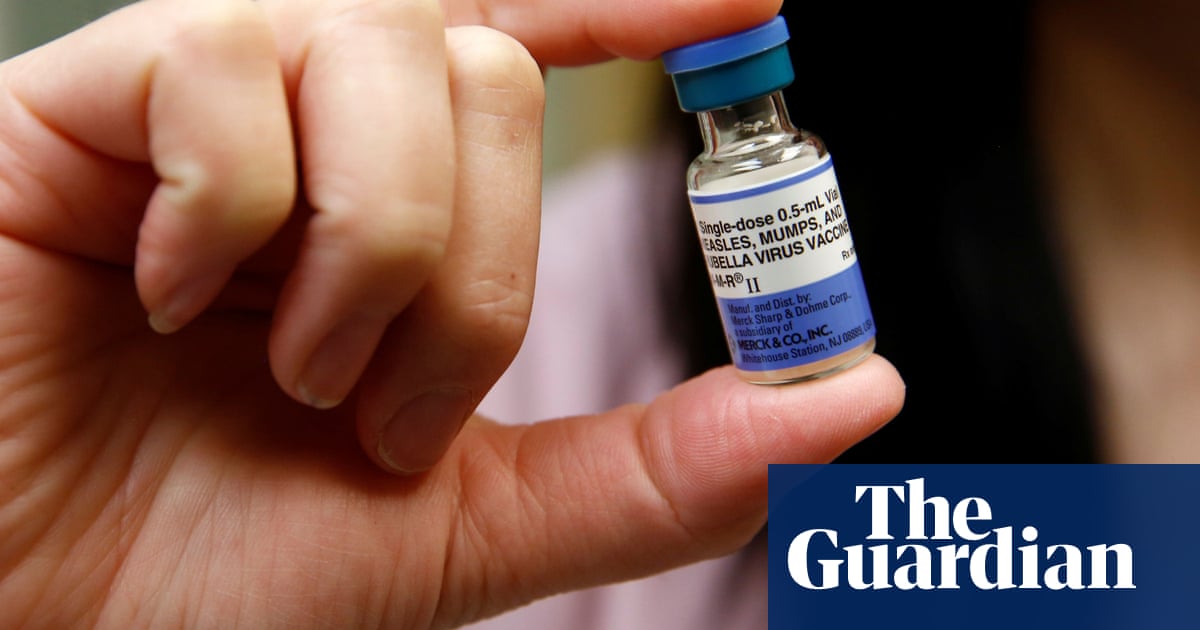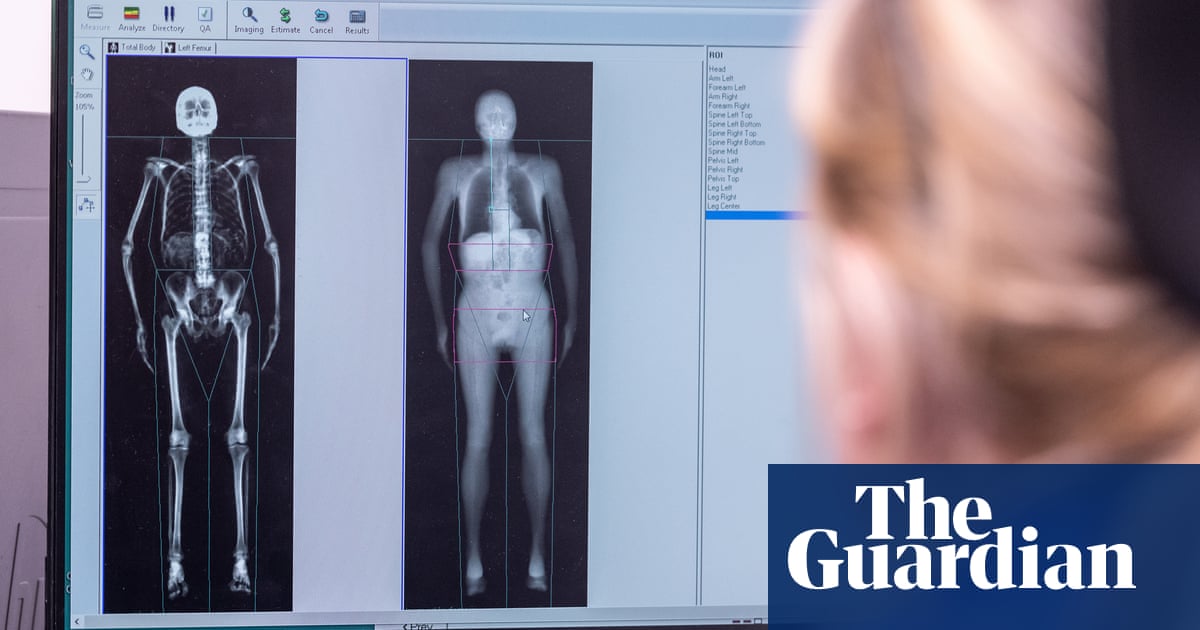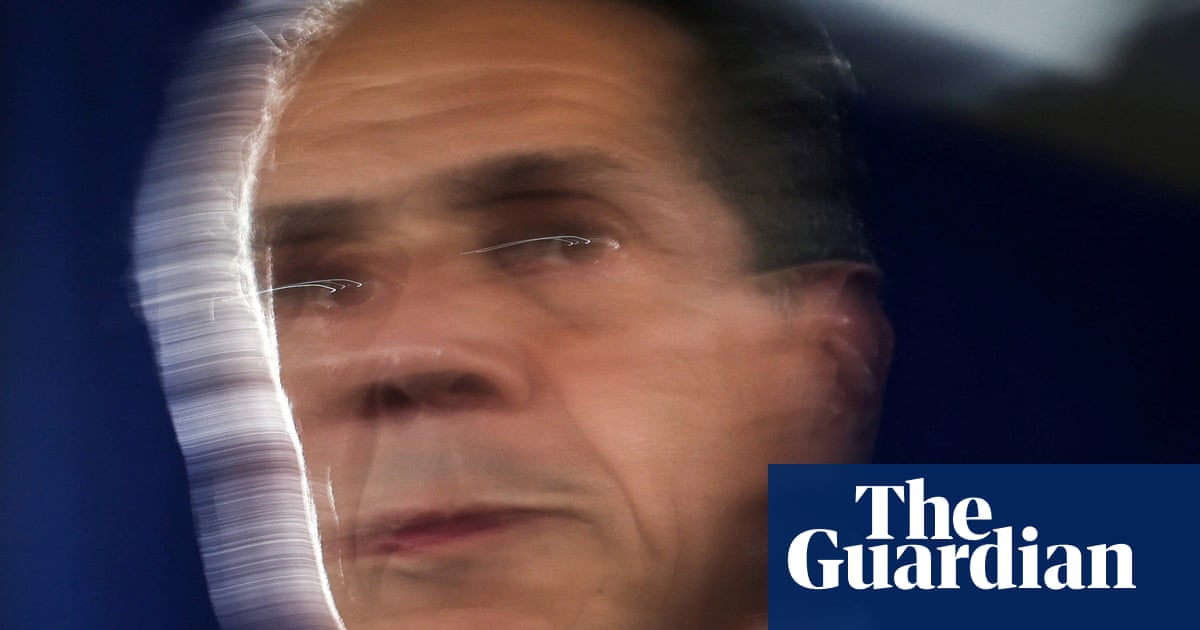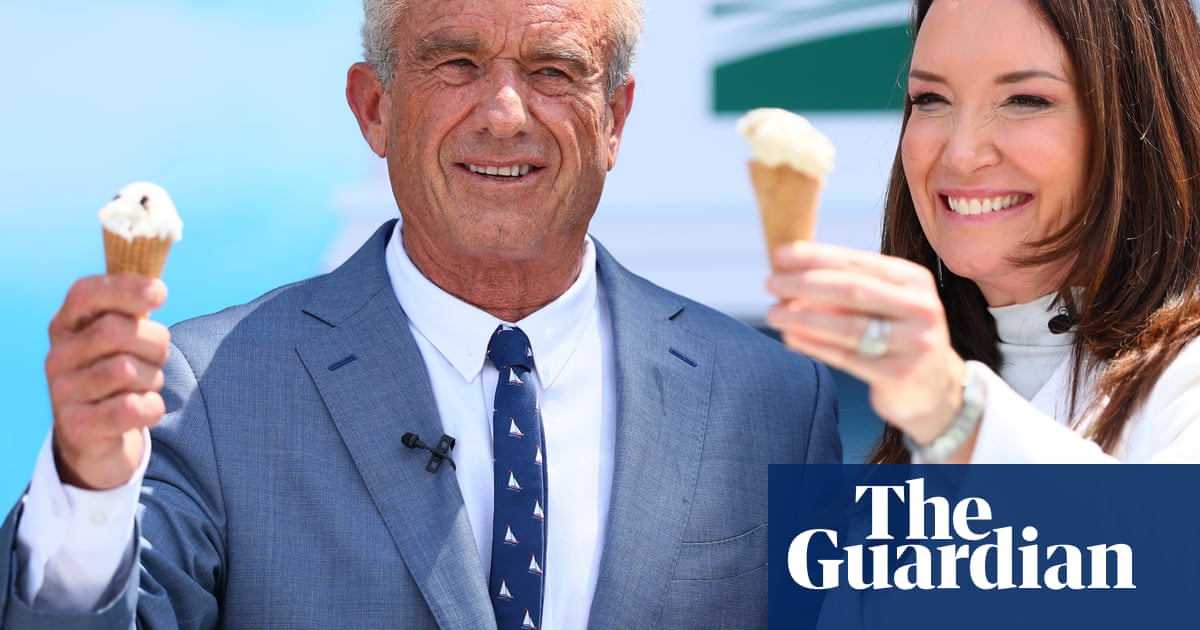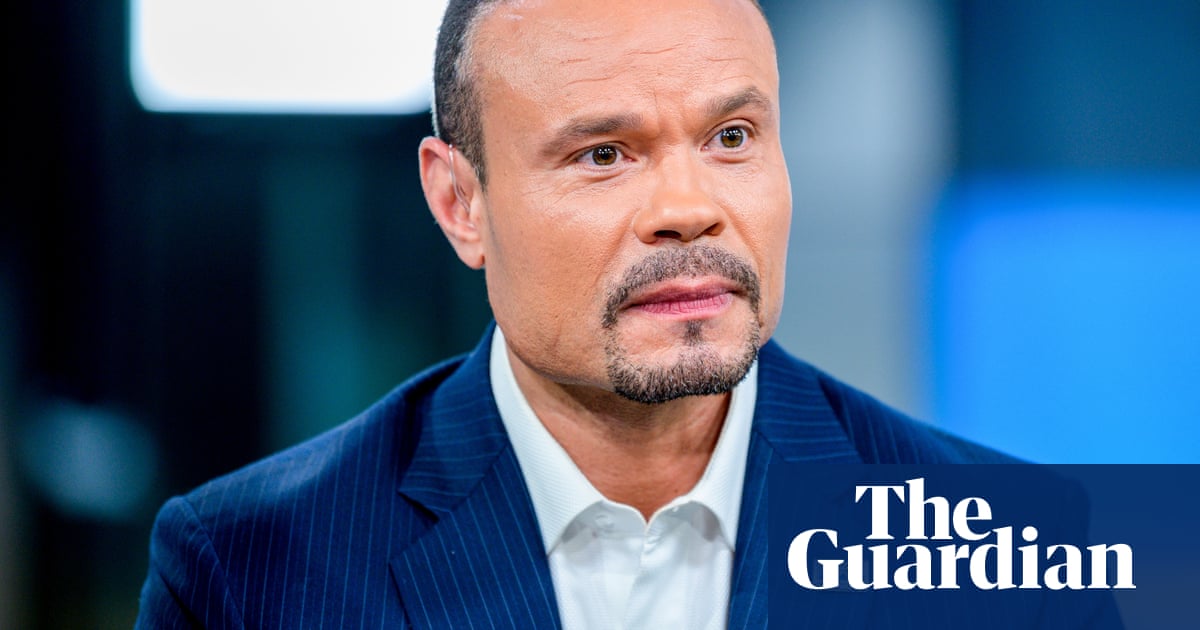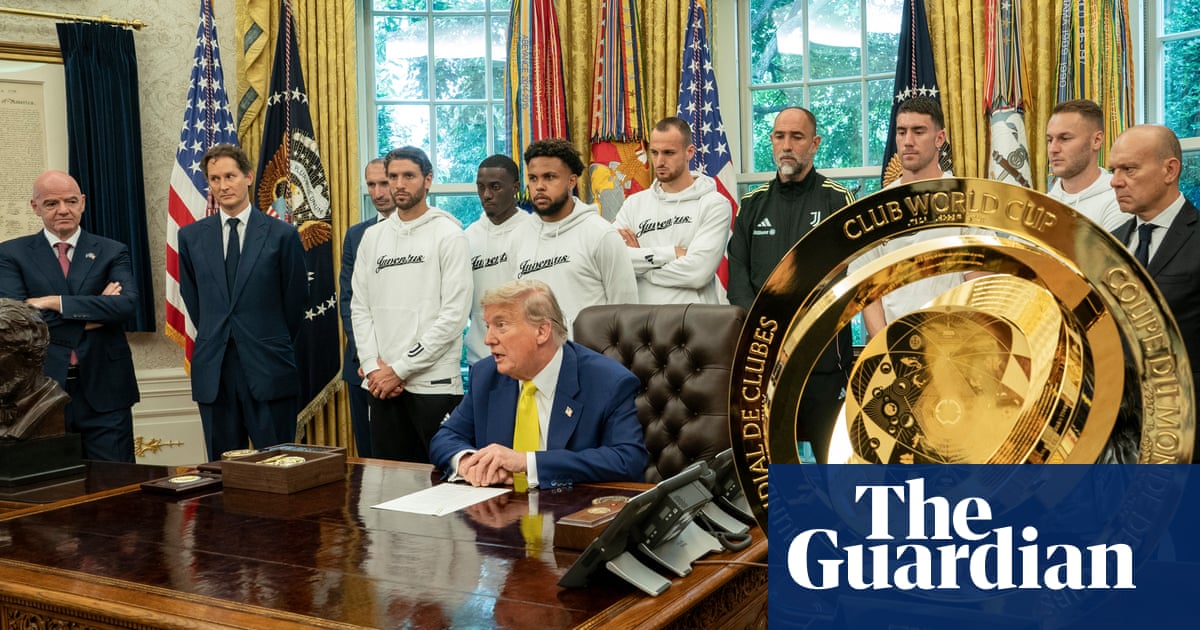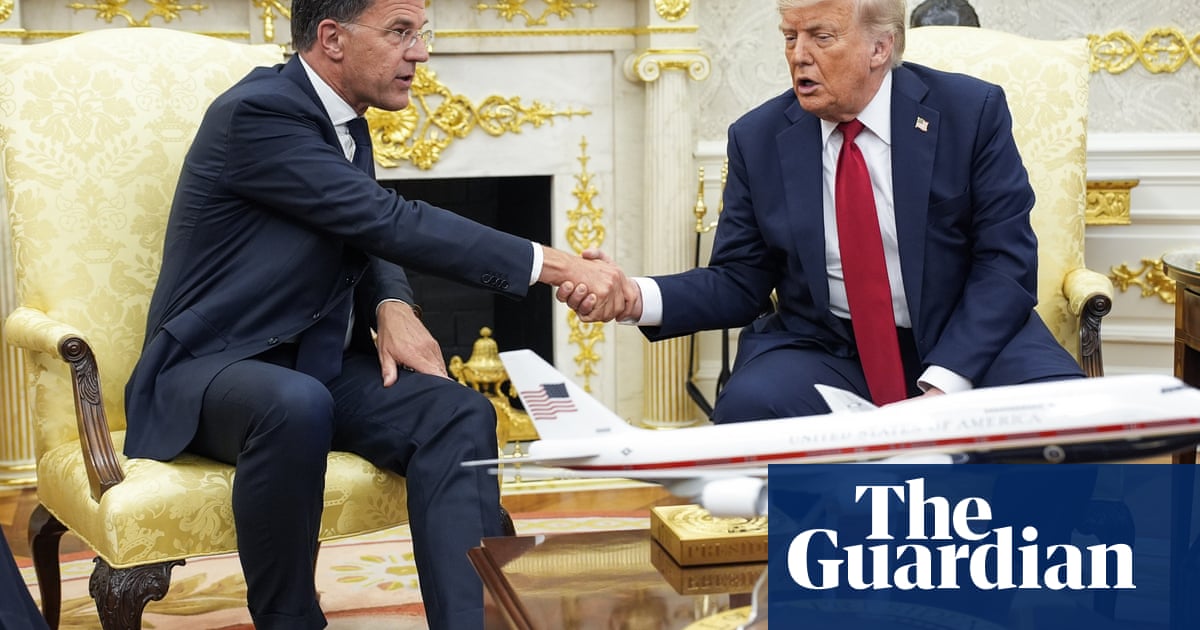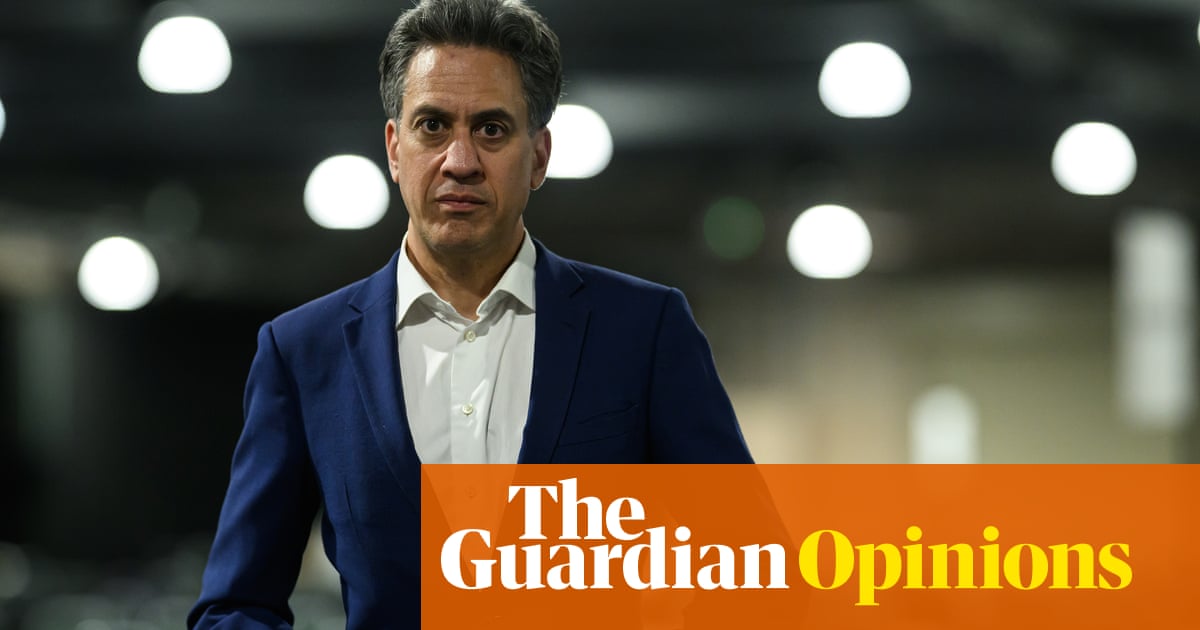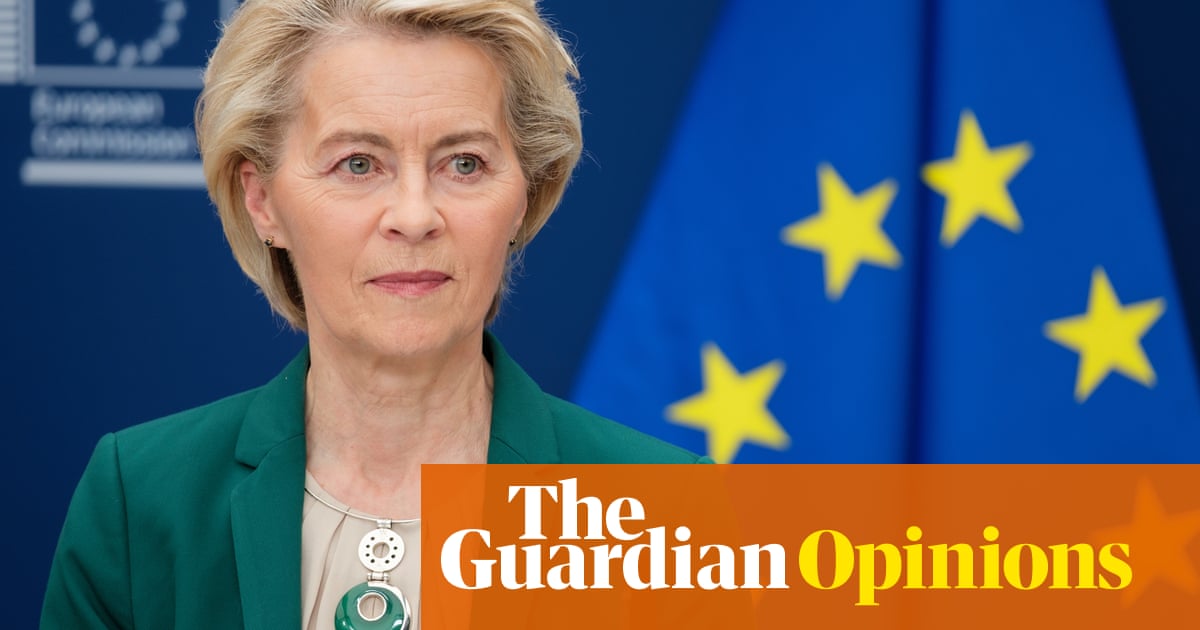Trump threatens Harvard's tax-exempt status after university refuses to cave to administration's demands
Donald Trump has said Harvard “should lose its tax exempt status” and be taxed as a political entity after the Ivy League school rejected what it said was an attempt at “government regulation” of the university.
In a post on his Truth Social platform, Trump wrote:
Perhaps Harvard should lose its Tax Exempt Status and be Taxed as a Political Entity if it keeps pushing political, ideological, and terrorist inspired/supporting “Sickness?” Remember, Tax Exempt Status is totally contingent on acting in the PUBLIC INTEREST!
Most universities, including Harvard, are exempt from federal income taxes because they are classified as providing a public good.
The latest escalation comes after the Trump administration elected to cut $2bn of Harvard’s federal grants after the university refused to cave in to what the president has called an effort to curb antisemitism on campus. Many educators, however, see the administration’s list of demands as a thinly veiled effort to more broadly curb academic freedoms.
Former president Barack Obama praised Harvard for setting an example for other higher education institutions to reject federal overreach into its governance practices.
Key events Show key events only Please turn on JavaScript to use this feature

Sam Levine
A watchdog group on Monday sued the Trump administration over its decision to remove a public tracker of how the government spends funds appropriated by Congress.
The director of the office of management and budget (OMB), Russell Vought, has sought to justify taking down the tracker, telling Congress in March that the tool “requires the disclosure of sensitive, predecisional and deliberative information”. “Such disclosures have a chilling effect on the deliberations within the executive branch,” he added.
But the lawsuit, filed on behalf of the non-profit group Protect Democracy in US district court in Washington DC, says that federal law requires the OMB to publicly post apportionment documents.
The suit says:
Congress mandated prompt transparency for apportionments to prevent abuses of power and strengthen Congress’s and the public’s oversight of the spending process.
Absent this transparency, the president and OMB may abuse their authority over the apportionment of federal funds without public or congressional scrutiny or accountability.
The vast majority of US private and public universities and colleges are tax-exempt entities because of their educational purposes – purposes including teaching, research and public services, that the federal government has long recognized as fundamental to fostering the productive and civic capacities of citizens – and/or the fact that they are state governmental entities. In turn, state governments usually grant tax-exempt status to such organizations.
The federal tax code classifies tax-exempt colleges and universities and their foundations as public charities, which means they’re not subject to tax on investment income, payout requirements, or other rules that apply to private foundations.
Here are the requirements from the IRS:
To be tax-exempt under section 501(c)(3) of the Internal Revenue Code, an organization must be organized and operated exclusively for exempt purposes set forth in section 501(c)(3), and none of its earnings may inure to any private shareholder or individual. In addition, it may not be an action organization, i.e., it may not attempt to influence legislation as a substantial part of its activities and it may not participate in any campaign activity for or against political candidates.
Organizations described in section 501(c)(3) are commonly referred to as charitable organizations. Organizations described in section 501(c)(3), other than testing for public safety organizations, are eligible to receive tax-deductible contributions in accordance with Code section 170.
The organization must not be organized or operated for the benefit of private interests, and no part of a section 501(c)(3) organization’s net earnings may inure to the benefit of any private shareholder or individual. If the organization engages in an excess benefit transaction with a person having substantial influence over the organization, an excise tax may be imposed on the person and any organization managers agreeing to the transaction.
Section 501(c)(3) organizations are restricted in how much political and legislative (lobbying) activities they may conduct.
Trump threatens Harvard's tax-exempt status after university refuses to cave to administration's demands
Donald Trump has said Harvard “should lose its tax exempt status” and be taxed as a political entity after the Ivy League school rejected what it said was an attempt at “government regulation” of the university.
In a post on his Truth Social platform, Trump wrote:
Perhaps Harvard should lose its Tax Exempt Status and be Taxed as a Political Entity if it keeps pushing political, ideological, and terrorist inspired/supporting “Sickness?” Remember, Tax Exempt Status is totally contingent on acting in the PUBLIC INTEREST!
Most universities, including Harvard, are exempt from federal income taxes because they are classified as providing a public good.
The latest escalation comes after the Trump administration elected to cut $2bn of Harvard’s federal grants after the university refused to cave in to what the president has called an effort to curb antisemitism on campus. Many educators, however, see the administration’s list of demands as a thinly veiled effort to more broadly curb academic freedoms.
Former president Barack Obama praised Harvard for setting an example for other higher education institutions to reject federal overreach into its governance practices.
As we said earlier, former president Joe Biden will address a conference in Chicago just before 5pm local time with a speech on focused on defending Social Security.
But, Politico reports, not all Democrats are too enthused by Biden’s return to the national stage. One former Biden donor and bundler said the speeches are “fine” because “that’s what you expect a former president to do, but I don’t anticipate crowds of Democrats wanting him as a focal point of the national conversation.”
And a person who worked closely with the Biden campaign has told the outlet:
It takes a special level of chutzpah as the man most responsible for reelecting Donald Trump to decide it’s your voice that is missing in this moment. The country would be better served if he rode off into the sunset.
RFK Jr urged to release nearly $400m allocated to help families combat heat
Nina Lakhani
Robert F Kennedy Jr, the secretary of health and human services, is facing new demands to release almost $400m allocated by Congress to help low-income US families keep the air conditioning on this summer.
The funds are under threat after the staff running a decades old program were fired – as part of the Trump administration’s so-called ‘efficiency’ drive.
States and tribal nations are still waiting for funding allocated by Congress for the Low Income Home Energy Assistance Program (LIHEAP) – a chronically underfunded bipartisan program that helped around 6 million households keep on top of energy bills last year.
The money is stuck in limbo after the Trump administration this month eliminated the division of energy assistance (DEA) – the office within the Department of Health and Human Services (HHS) that oversees the four-decade old program – and fired the entire staff.
Pressure is now growing on Kennedy to reinstate the staff and guarantee that the energy aid be distributed to the states – in compliance with the administration’s constitutional obligation to abide with congressional appropriations.
An estimated one in six households are behind on their energy bills, according to NEADA, which means millions of families could be at risk of utilities shutting off power in what’s expected to be another record-breaking hot summer.
Amid a protracted cost of living crisis, one in four households were unable to keep up with energy bills last year, according to the Census Bureau.
In the northern cold states, LIHEAP helped keep the heat on for more than 43,000 households in Michigan and 26,000 Vermonters. But in the short-term it is mostly southern states where residents are most likely to suffer first, especially as deadly heat waves increase due to global heating.
In Arizona, just over 37,000 residents qualified for LIHEAP assistance last year. In Phoenix, the US’s hottest major city, residents endured a record 113 consecutive days at or over 100F. Even with LIHEAP, almost one in four heat deaths in Maricopa county, where Phoenix is located, happened indoors. A significant proportion did not have electricity and/or a functioning air conditioning unit.
Doge collecting federal data to remove undocumented migrants from housing and work - report
The Trump administration is using personal data normally protected from dissemination to find undocumented immigrants where they work, study and live, often with the goal of removing them from their housing and the workforce, the Washington Post (paywall) reports.
The Post reports that at the Department of Housing and Urban Development, officials are working on a rule that would ban mixed-status households (where some family members have legal status and others don’t) from public housing, according to multiple staffers who spoke on the condition of anonymity out of fear of retribution. Affiliates from the so-called “department of government efficiency” (Doge) are also looking to kick out existing mixed-status households, vowing to ensure that undocumented immigrants do not benefit from public programs, even if they live with citizens or other eligible family members.
The push extends across agencies: Last week, the Social Security Administration moved to classify more than 6,000 living immigrants as dead, canceling their social security numbers and effectively wiping out their ability to work or receive benefits in an effort to get them to leave the country. Federal tax and immigration enforcement officials recently reached a deal to share confidential tax data for people suspected of being in the US illegally.
The result is an unprecedented effort to use government data to support the administration’s immigration policies. The Post notes that that includes information people have reported about themselves for years while paying taxes or applying for housing — believing that information would not be used against them for immigration purposes. Legal experts say the data sharing is a breach of privacy rules that help ensure trust in government programs and services.
Tanya Broder, senior counsel for health and economic justice policy at the left-leaning National Immigration Law Center, told the Post.
It’s not only about one subgroup of people, it’s really about all of us. Everyone cares about their privacy. Nobody wants their health-care information or tax information broadcast and used to go after us.
The White House did not reply to a request for comment. In response to questions, a DHS official said: “The government is finally doing what it should have all along: sharing information across the federal government to solve problems.”
“Information sharing across agencies is essential to identify who is in our country, including violent criminals, determine what public safety and terror threats may exist, scrub these individuals from voter rolls, as well as identify what public benefits these aliens are using at taxpayer expense,” the department’s assistant secretary for public affairs said.
Trump donors eye potential bonanza if US succeeds with Greenland land-grab
Tom Perkins
Some of Donald Trump’s biggest campaign donors and investors, who collectively have hundreds of millions of dollars in financial ties to the US president, are positioned to potentially profit from any American takeover of Greenland, raising even more ethical questions around Trump’s controversial pursuit of the Arctic territory.
The administration is in part aiming to secure rare minerals that are essential for the US tech industry and national security, and to potentially reopen oil and gas exploration: “This is about critical minerals, this is about natural resources,” Trump’s national security adviser, Mike Waltz, recently said.
A Guardian analysis of campaign finance records and corporate filings show US tech moguls who invested in mining companies operating in Greenland, fossil fuel executives and crypto tycoons with their own set of plans for the country collectively gave at least $243m to the president’s 2024 campaign.
Meanwhile institutional investors bankrolling Greenland mining interests also amassed $314m worth of shares in Trump Media, most just ahead of the election.
“There’s a closed loop among these investors, billionaires, Trump and the crypto projects,” said Emily DiVito, a senior adviser for economic policy with the Groundwork Collaborative economic thinktank. Greenland is an example of that in action, she added.
“These donations are investments, and they were made with particular outcomes in mind, and even if they weren’t stated at the time, the money changed hands,” DiVito said.
Joe Biden to deliver his first major post-presidency speech
Former US President Joe Biden is expected to return to the national stage later today as he delivers his first major post-presidency speech.
The 82-year-old Democrat, who reluctantly dropped out of the presidential race last year amid concerns about his cognitive functioning, will talk about how social security is being threatened by the policies of the Trump administration.
The speech will be made to the national conference of Advocates, Counselors and Representatives for the Disabled (ACRD), in Chicago.
“As bipartisan leaders have long agreed, Americans who retire after paying into Social Security their whole lives deserve the vital support and caring services they receive,” Rachel Buck, executive director of the ACRD, said.
“We are thrilled the president will be joining us to discuss how we can work together for a stable and successful future for Social Security.”

Biden has largely avoided speaking publicly since leaving the White House in January, despite being frequently named by Trump as the cause of many of the country’s problems – both home and abroad – over the last three months.
Biden previously spoke at a National High Schools Model United Nations event last month, but it was not open to journalists.
Trump has dramatically slashed the size of the government workforce, including thousands of employees at the Social Security Administration (SSA).
Along with a planned layoff of 7,000 workers and controversial plans to impose tighter identity-proofing measures for recipients, the SSA has been sued over a decision to allow Elon Musk’s so-called department of government efficiency to access individuals’ social security numbers and other personally identifiable information.
Social security recipients, meanwhile, have complained about long call wait times as the agency’s “my social security” benefits portal has seen an increase in outages.
Individuals who receive supplemental security income, including disabled seniors and low-income adults and children, also reported receiving a notice that said they were “not receiving benefits”.
Trump’s AI infrastructure plans could face delays due to Texas Republicans

Hugo Lowell
Hugo Lowell is a reporter in the Washington bureau of the Guardian covering Donald Trump and the Justice Department
Donald Trump’s plans to expand infrastructure to produce artificial intelligence in the US could face years of delays with the Republican-controlled Texas statehouse poised to pass legislation that imposes regulatory hurdles on data centers.
The Trump administration earlier this year announced that a joint venture called Stargate would construct a total of 20 data centers to provide computing power for AI as part of an effort to help the US compete against China for leadership of the technology and spur investors to pursue AI projects.
The companies behind Stargate – OpenAI, SoftBank, Oracle and MGX, an investor backed by the United Arab Emirates, which together have pledged up to $500bn – chose Texas, with its loose regulation and pre-existing energy infrastructure for the first data center.
But the construction of future data centers to support Trump’s AI agenda faces headwinds as a result of the Texas legislation SB6, which introduces new regulatory measures including a six-month review process in addition to the existing 6-18 month evaluation period with the goal of protecting its own power grid in the face of storms.
The effects of the proposed bill are two-pronged: the regulatory measures could result in a maximum 24-month approval process, while the requirement to pay additional fees to the Texas grid operator and install backup generators would dramatically raise construction costs.
That could lead tech companies to scale back planned construction of data centers in the state, according to equity analysts.
You can read the full story here:
Iran expected to resist US plan to move uranium stockpile to third country
In some foreign policy news, Iran is expected to resist a US proposal to transfer its stockpile of highly enriched uranium to a third country – such as Russia – as part of Washington’s attempt to rein in Tehran’s civil nuclear programme.
The issue, among the key stumbling blocks to a future agreement, was raised in the initial, largely indirect, talks held in Muscat, Oman, between Iran’s foreign minister, Abbas Araghchi, and Donald Trump’s special envoy Steve Witkoff.
Trump repeatedly has threatened to unleash airstrikes targeting Iran’s nuclear program if a deal isn’t reached. Iranian officials increasingly warn that they could pursue a nuclear weapon with their stockpile of uranium enriched to near weapons-grade levels.
Here is an extract from a story on the high-stakes nuclear talks by the Guardian’s diplomatic editor, Patrick Wintour:
Iran is arguing the stockpile, amassed over the past four years, should remain in Iran under the strict supervision of the UN’s International Atomic Energy Agency. Tehran sees this as a precaution, or a form of insurance in case a future US administration withdraws from the agreement, as Donald Trump did in 2018 when he rejected the 2015 deal brokered by Barack Obama.
Tehran says that if the stockpile was to leave Iran and the US pulled out of the deal, it would have to start from scratch in enriching uranium to higher purity – effectively punishing Iran for a breach committed by Washington.

Meanwhile, more than 370 alumni of Georgetown University joined 65 current students there in signing on to a letter opposing immigration authorities’ detention of Dr Badar Khan Suri, a senior postdoctoral fellow.
Immigration officials revoked his J-1 student visa, alleging his father-in-law was an adviser to Hamas officials more than a decade ago – and claiming he was “deportable” because of his posts on social media in support of Palestine.
The cases are the latest in a string of Ice arrests instigated by the Trump administration targeting students who oppose Israel’s war in Gaza and scholars present in the US on visas or green cards.
Judges orders Trump administration not to deport Palestinian green card holder arrested at citizenship interview
A judge in Vermont has ordered the Trump administration not to deport a Columbia University student who was arrested upon arriving for an interview for his US citizenship petition.
District Judge William Sessions ordered Donald Trump and other senior officials not to remove Mohsen Mahdawi from the US or take him out of the state of Vermont.
Mahdawi, a green card holder who is due to graduate next month, had helped organise protests at Columbia University opposing Israel’s assault on Gaza. He was born in a refugee camp in the West Bank and moved to the US in 2014.
His attorney Luna Droubi said “the Trump administration detained Mohsen Mahdawi in direct retaliation for his advocacy on behalf of Palestinians and because of his identity as a Palestinian”, adding that “his detention is an attempt to silence those who speak out against the atrocities in Gaza. It is also unconstitutional”.
In court documents, Mahdawi’s attorneys state that he is a lawful permanent resident of the US, currently on the path to naturalization, and has held a green card for the past 10 years.
As my colleague Anna Betts reports in this story, Mahdawi plans to return to Columbia University as he has been accepted into a master’s program at Columbia’s School of International and Public Affairs, which will begin this fall, according to court documents.
Vermont lawmakers Bernie Sanders, Peter Welch and Becca Balint have issued a statement calling for his immediate release: “This is immoral, inhumane, and illegal. Mr. Mahdawi, a legal resident of the United States, must be afforded due process under the law and immediately released from detention.”

His circumstances are similar to those of Mahmoud Khalil, the Palestinian activist and Columbia University graduate who was arrested by Immigration and Customs Enforcement (Ice) officers in New York on 8 March and transferred to a detention facility in Jena, Louisiana, where he has been detained for over a month.
A US immigration judge ruled on Friday that, despite being a legal US resident, Syrian-born Khalil, who participated in pro-Palestinian protests, is eligible to be deported from America.
Khalil isn’t accused of breaking any laws during the protests at Columbia. The government has said noncitizens who participate in such demonstrations should be expelled from the country for expressing views that the administration considers to be antisemitic and “pro-Hamas”.
Khalil’s lawyers have challenged the legality of his detention, saying the Trump administration is trying to deport him for an activity that is protected by the first amendment.
Trump officials step up defiance over man wrongly deported to El Salvador

Hugo Lowell
Hugo Lowell is a reporter in the Washington bureau of the Guardian covering Donald Trump and the Justice Department
The Trump administration on Monday misrepresented a US supreme court decision that compelled it to return a man wrongly deported to El Salvador, using tortured readings of the order to justify taking no actions to secure his release.
The supreme court last week unanimously ordered the administration to “facilitate” the release of Kilmar Abrego García, who was supposed to have been protected from deportation to El Salvador regardless of whether he was a member of the MS-13 gang.
But at an Oval Office meeting between Trump and El Salvador’s president Nayib Bukele, Trump deferred to officials who gave extraordinary readings of the supreme court order and claimed the US was powerless to return Abrego García to US soil.
“The ruling solely stated that if this individual at El Salvador’s sole discretion was sent back to our country, we could deport him a second time,” said Trump’s policy chief Stephen Miller, about an order that, in fact, upheld a lower court’s directive to return Abrego García…

The remarks at the Oval Office meeting marked an escalation in the Trump administration’s attempts to claim uncertainty with court orders to avoid having to take actions it dislikes. In Abrego García’s case, officials appeared to manufacture uncertainty in particularly blatant fashion.
And the fact that the US is paying El Salvador to detain deportees it sends to the notorious Cecot prison undercut the notion that the administration lacked the power to return Abrego García into US custody.
The case started when Abrego García was detained by police in 2019 in Maryland, outside a Home Depot, with several other men, and asked about a murder. He denied knowledge of a crime and repeatedly denied that he was part of a gang.

Abrego García was subsequently put in immigration proceedings, where officials argued they believed he was part of the MS-13 gang in New York based on his Chicago Bulls gear and on the word of a confidential informant.
The case went before a US immigration judge, who suggested that Abrego García could be a member of MS-13 and agreed to a deportation order but shielded him from being sent to El Salvador because he was likely to face persecution there by a local gang.
The Trump administration did not appeal against that decision, and Immigration and Customs Enforcement has since said in a court filing that Abrego García’s deportation to El Salvador was an “administrative error”. The supreme court also called his removal illegal.
You can read the full story here:
China’s top Hong Kong official warns US 'hillbillies' over 'shameless' tariffs
One of China’s lead officials overseeing Hong Kong has condemned punitive US tariffs on China as “shameless” and attacked American “hillbillies” amid a continuing trade war between Beijing and Washington that has caused turmoil in global markets.
Xia Baolong, director of the Hong Kong and Macao Work Office, said Hong Kong has never levied taxes on imports and that the US enjoyed a $272 bn trade surplus in the city over the past decade.
US President Donald Trump has increased the levies imposed on China to 145%, while Beijing has set a retaliatory 125 percent toll on American imports - a move not followed by Hong Kong.
Imposing tariffs on the city is “hegemonic and shameless in the extreme”, and shows that the US does not want Hong Kong to thrive, Baolong said in a pre-recorded speech at an event to mark the 10th iteration of China’s annual national security education day.
He said the US “is the greatest culprit in undermining Hong Kong’s human rights, freedom, rule of law, prosperity and stability.”
“It is not after our tariffs - it wants to take our lives,” Baolong was quoted as saying.

He added that the sweeping US tariffs would not shake the determination of Beijing and Hong Kong governments and that “victory must belong to the great Chinese people”.
“Let those American ’hillbillies’ wail before the 5,000-year-old civilisation of the Chinese nation” he said, adding that anyone seeking to bring China into poverty was an “enemy”.
The officials reference could be to Hillbilly Elegy, JD Vance’s bestselling 2016 memoir based on recollections of a volatile childhood in Middletown, Ohio, which became a political lightning rod in the 2024 presidential race when the Ohio senator was Donald Trump’s running mate.
Vance provoked anger in Beijing earlier this month when he referred to “Chinese peasants” in an interview defending Trump’s tariffs. Speaking to Fox News, Vance asked: “What has the globalist economy gotten the United States of America? And the answer is, fundamentally, it’s based on two principles – incurring a huge amount of debt to buy things that other countries make for us.
“To make it a little more crystal clear, we borrow money from Chinese peasants to buy the things those Chinese peasants manufacture.”
Hong Kong is a former British colony that became a special administrative region of China in 1997. In theory, it is governed under a system known as “one country, two systems”, a constitutional arrangement that promised Hong Kong a high degree of autonomy and rights protections.
But it is widely seen to have reneged on the deal, crushing pro-democracy protests and imposing a national security law in 2020 – targeting secession, subversion, terrorism and collusion with foreign forces – which has in effect silenced opposition voices among Hong Kong’s once-vibrant civil society.
Hong Kong is subject to the high US tariffs imposed on China as it is no longer considered a separate trading entity by Washington so means is not entitled to favourable trading terms anymore. Trump ended Hong Kong’s preferential trade status following China’s security crackdown on Hong Kong in 2020.
JD Vance says US hopeful of ‘great’ trade deal with UK
As my colleague Martin Belam reports in our UK politics live blog, JD Vance has said the US is optimistic it can negotiate a “great” trade deal with the UK.
In an interview with online outlet Unherd, the US vice president told Sohrab Ahmari:
We’re certainly working very hard with Keir Starmer’s government. The president really loves the UK. He loved the queen. He admires and loves the king. It is a very important relationship. And he’s a businessman and has a number of important business relationships in [the UK].
But I think it’s much deeper than that. There’s a real cultural affinity. And of course, fundamentally America is an Anglo country. I think there’s a good chance that, yes, we’ll come to a great agreement that’s in the best interest of both countries.

Unlike China, Britain was spared the most punitive treatment in Trump’s initial tariff announcement on 2 April, but British imports in the US still incur a 10% charge while its steel and car sectors incur a rate of 25%.
The UK government has been hopeful of a deal to exempt the UK from Trump’s tariffs.
The UK’s chancellor, Rachel Reeves, will aim to continue negotiations for an economic deal with the US later this month when she travels to Washington to attend the International Monetary Fund’s spring meetings with other finance ministers. You can read more about Vance’s comments today in this article by my colleague Rachel Hall.
South Korea plans extra $4.9bn help for microchips after US begins 'national security' probe into semiconductor industry
South Korea has announced plans to invest an additional $4.9bn in the country’s semiconductor industry, citing “growing uncertainty” over US tariffs.
“An aggressive fiscal investment plan has been devised to help local firms navigate mounting challenges in the global semiconductor race,” the finance ministry said.
“To foster a dynamic, private sector-led ecosystem for semiconductor innovation and growth, the government will increase its investment in the sector from 26 trillion won ($18.2bn) to 33 trillion won,” the ministry added.
Semiconductors are tiny chips that power just about everything, including computers, mobile phones and cars. They are central to the global economy. The UK, the US, Europe and China rely heavily on Taiwan for semiconductors.

But South Korea – Asia’s fourth largest economy – is also a major exporter to the US and concerns about the semiconductor sector have hit the Seoul-listed shares of the world’s largest memory chip maker Samsung, and largest memory chip supplier SK Hynix.
The statement of extra investment from South Korea’s finance ministry comes after the Trump administration launched investigations into imports of pharmaceuticals and semiconductors on national security grounds.
These industries - so far exempt from the 10% US import charges that began on 5 April - may face tariffs after the probes are complete.
US President Donald Trump has directed the US commerce department to conduct a three-week investigation into the imports, during which time public comments on the issue will be heard before a decision is made.
Trump said on Sunday he would be announcing a tariff rate on imported semiconductors over the next week, adding that there would be flexibility with some companies in the sector.
On 2 April, Trump announced sweeping tariffs on global trading partners, including the 25 percent on South Korean goods, before backtracking and suspending their implementation for 90 days.
Even so, “duties targeting specific sectors such as semiconductors and pharmaceuticals, remain on the horizon”, finance minister Choi Sang-mok said during a meeting.
“This grace period offers a crucial window to strengthen the competitiveness of South Korean companies amid intensifying global trade tensions,” he added.
Obama urges other universities to defy federal attempts to 'stifle academic freedom' after Harvard funding freeze
Good morning and welcome to our US politics blog.
Former US president Barack Obama has condemned the education department for freezing $2.3bn in federal funds to Harvard University after the elite college rejected a list of demands from the White House.
In some of his most vocal criticism of this Trump administration, Obama praised Harvard, the country’s oldest university, for setting an example for other higher education institutions to reject federal overreach into its governance practices.
Harvard has set an example for other higher-ed institutions – rejecting an unlawful and ham-handed attempt to stifle academic freedom, while taking concrete steps to make sure all students at Harvard can benefit from an environment of intellectual inquiry, rigorous debate and mutual respect. Let’s hope other institutions follow suit.
His comments came after Harvard decided to fight the White House’s demands that it crack down on alleged antisemitism and civil rights violations. It is the first major US university to defy pressure from the White House to change its policies.
In a letter to Harvard on Friday, the administration called for broad government and leadership reforms, a requirement that Harvard institute what it calls “merit-based” admissions and hiring policies as well as conduct an audit of the study body, faculty and leadership on their views about diversity.
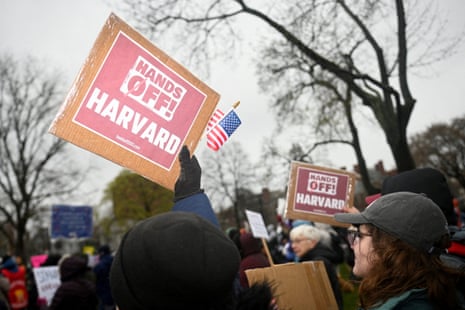
The demands, which are an update from an earlier letter, also call for a ban on face masks, which appeared to target pro-Palestinian protesters; close its diversity, equity and inclusion programs, which it says teach students and staff “to make snap judgments about each other based on crude race and identity stereotypes”; and pressured the university to stop recognizing or funding “any student group or club that endorses or promotes criminal activity, illegal violence, or illegal harassment”.
The administration also demanded that Harvard cooperate with federal immigration authorities.
Harvard’s president said in a letter that the university would not comply with the Trump administration’s demands to dismantle its diversity programming and to limit student protests in exchange for its federal funding.
“No government – regardless of which party is in power – should dictate what private universities can teach, whom they can admit and hire, and which areas of study and inquiry they can pursue,” Alan Garber, the university president, wrote, adding that Harvard had taken extensive reforms to address antisemitism.
The department of education announced in March that it had opened an investigation into 60 colleges and universities for alleged “anti-Semitic harassment and discrimination”. It came after protests against Israel’s war on Gaza were put on across campuses last year, demonstrations that many Republicans framed as antisemitic.
Harvard’s response to the White House’s demands was in sharp contrast to the approach taken by Columbia University, the epicentre of last year’s protests against Israel’s assault on Gaza.
The Trump administration cut $400m in grants to the private New York school, accusing it of failing to protect Jewish students from harassment. The school caved in to demands and responded by agreeing to reform student disciplinary procedures and hiring 36 officers to expand its security team.
Stay with us throughout the day as we have more reaction to this story and many others.

 2 months ago
77
2 months ago
77



